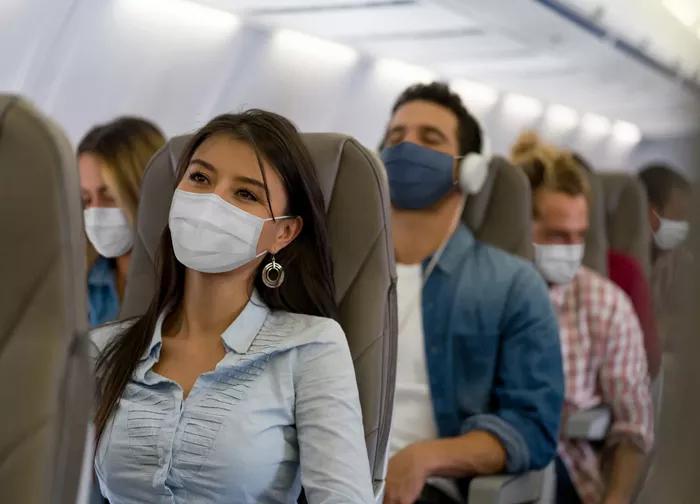Recent reports from the TSA indicate record-high numbers of airline travelers screened, with major U.S. airlines anticipating a 6.3 percent increase in passenger volume this summer compared to last year.
Dr. Carl Abraham, a board-certified infectious disease physician and assistant professor at New York Institute of Technology College of Osteopathic Medicine (NYITCOM), offers crucial advice to air travelers to maintain their health at cruising altitudes.
Dr. Abraham highlights the surprising risk of germ transmission aboard airplanes, despite the presence of high efficiency particulate air (HEPA) filters that rapidly exchange cabin air. He notes that while the risk of airborne pathogen spread is generally lower than in other indoor public settings, studies indicate that sitting within two rows of an infected passenger increases the likelihood of contracting an airborne infection.
“In response to this,” Dr. Abraham advises, “individuals with respiratory infections or compromised immune systems should consider wearing N95 masks for protection.”
He emphasizes the importance of disinfecting frequently touched surfaces such as seatbelts and tray tables, although airlines are responsible for thorough cleaning between flights.
Dr. Abraham identifies airplane lavatories as potential hotspots for disease transmission. He explains that transmission can occur through contact with contaminated surfaces or by inhaling air contaminated with viruses like influenza, SARS-CoV-2, measles, and norovirus, which causes diarrheal outbreaks.
“Airplane lavatories, like public restrooms, are frequently contaminated,” Dr. Abraham warns. “Despite cleaning efforts between flights, these areas harbor bacteria on surfaces such as toilet seats, sink handles, door handles (both inside and outside), and floors. Bacteria can also be tracked into the cabin on the soles of shoes.”
To minimize exposure, Dr. Abraham recommends using sanitizing wipes to handle lavatory door handles, using toilet seat covers, and closing the lid before flushing. He underscores the importance of thorough hand washing or hand hygiene practices before touching personal items or consuming food.
“Effective hygiene practices,” concludes Dr. Abraham, “are crucial to reducing the risk of illness during air travel.”
This guidance from Dr. Carl Abraham provides travelers with essential strategies to mitigate health risks associated with air travel, ensuring a safer journey amidst increasing passenger numbers this summer.
Related topics:
- Fraser Health Introduces Revolutionary Stroke Medication
- WHO Enhances Health Care Access in Underserved Afghan Provinces
- Critics Condemn MSF Leadership for Shutting Down Access Campaign


